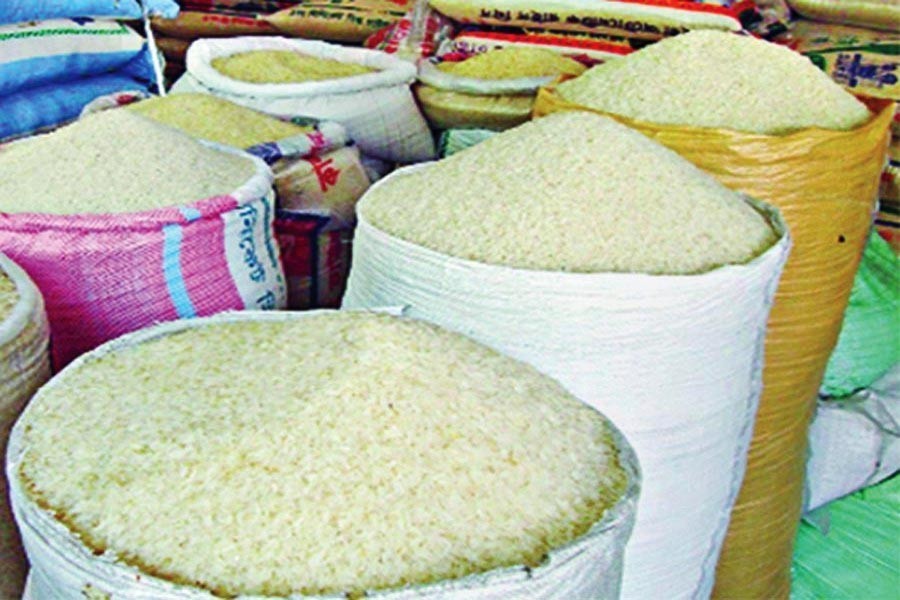Failure in domestic procurement, low public storage and hoarding by market players resulted in the surge in rice prices during the current financial year, a government study has revealed.
The study, published on Tuesday, also said government's failure to import on time as well as fear of production fall amid natural disaster and the pandemic also contributed to the hike in rice prices.
The findings of the study were made available at the workshop organised by the Bangladesh Agricultural Research Council (BARC) at its auditorium.
The findings of two other studies on the reasons behind the hike in prices of potato and onion were also made public at the workshop.
The studies also found the market manipulation by the traders was responsible for notable surge in onion and potato prices recently.
Agriculture Minister Dr Muhammad Abdur Razzaque said the decline in public food storage was one of the key reasons behind the rice price hike.
He said the government's intervention could largely help keep rice market stable.
Production also declined in Aus and Aman seasons causing price surge as millers took a conservative approach in releasing rice, he added.
The minister said 0.65 million tonnes of paddy was purchased in Aman season by the government in 2019-20.
"But we are not being able to purchase paddy this Aman season amid higher prices of the crop at the growers' level", he said.
However, a study on rice price hike by the Bangladesh Rice Research Institute (BRRI) showed that hoarding increased in 2020 both by the millers and growers pushing up both rice and paddy prices.
It said 62 per cent of paddy was sold within a month of Aman harvest in FY'20 which was 55 per cent in FY'21.
Fear of output fall amid floods and the pandemic also forced millers and seasonal traders to hoard rice and paddy in a large quantity resulting in price hike.
The study said mismatch between the government's output data and availability of rice also caused problems.
The BRRI study suggested making a 1.25 million tonnes of buffer stock of rice across the year for food security of the country and for timely market intervention in any crisis.
However, the government's rice stock is now 0.54 million tonnes, according to the food ministry.
The BRRI study, presented by its senior scientific officer Dr Rouf Sarker, said rice procurement should be 2.5 million tonnes or 10 per cent of the production in a season.
Another two studies on hike in onion and potato prices in FY'21 by the Bangladesh Agricultural Research Institute (BARI) also echoed that of the rice study.
The studies found big traders' role figured importantly in price hike.
The studies suggested increasing monitoring and control in cold storages, taking strict action against market manipulators and providing authentic data on production and imports.
The study on onion also suggested making a 0.5 million tonnes of storage by the government for timely market intervention.
It proposed to restrict onion import during harvesting season and sourcing onion in time from alternative markets in the globe rather than depending only on one country.
Agriculture secretary Md Mesbahul Islam, BARC executive chairman Dr Shaikh Mohammad Bokhtiar, former director general of Bangladesh Livestock Research Institute Dr Jahangir Alam Khan, director general of Krishi Gobeshona Foundation (KGF) Dr Jiban Krishna Biswas and BRRI director general Dr Shahjahan Kabir also spoke, among others.


